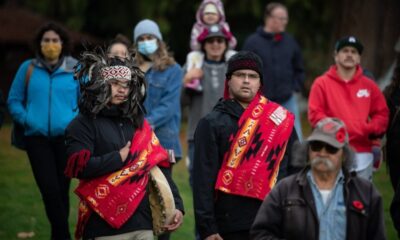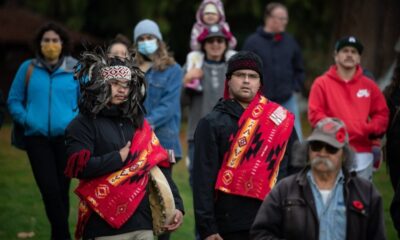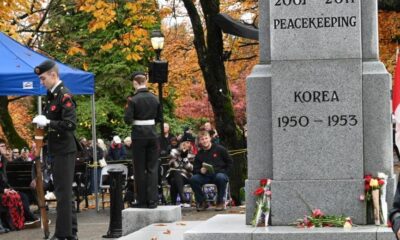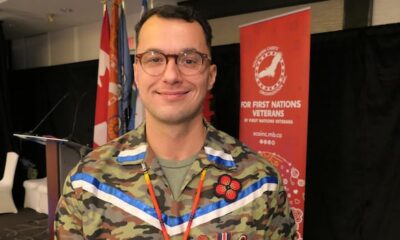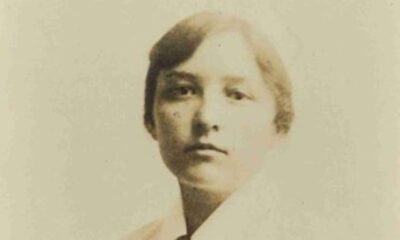Science
Indigenous Veterans: Honoring Their Battles at Home and Abroad
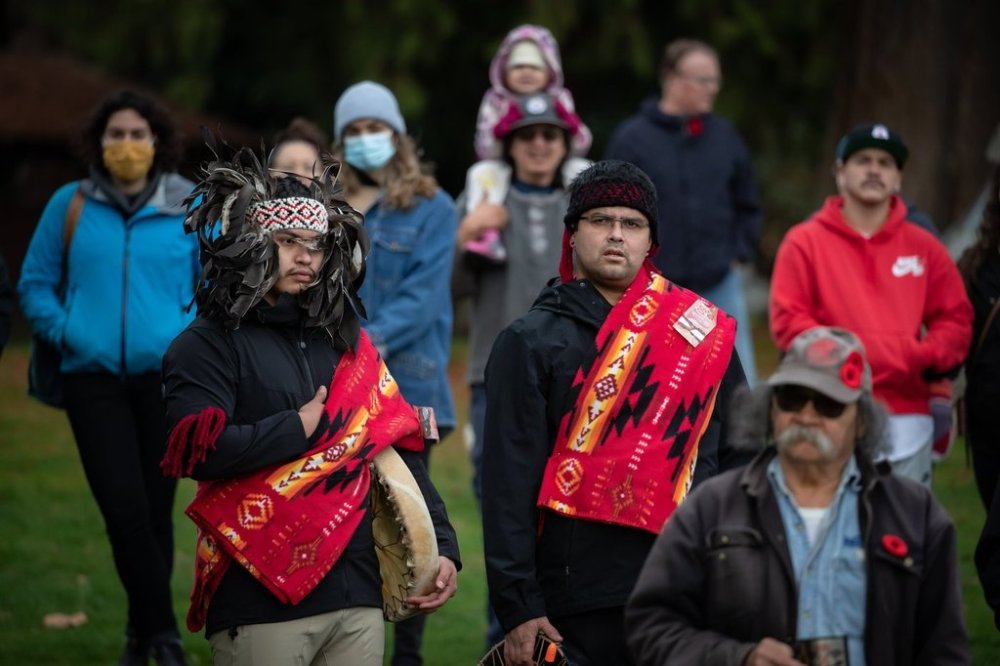
VANCOUVER – Indigenous veterans who served in conflicts overseas faced significant challenges upon returning home, a reality highlighted by the experiences of many like John Moses. His father, Russell Moses, a veteran of the Korean War, encountered discrimination upon his return in 1952, being turned away from a bar due to his race. John Moses, a member of the Delaware and Upper Mohawk bands from Six Nations of the Grand River and a third-generation member of the Canadian Armed Forces, reflects on the irony of veterans fighting for the sovereignty of nations abroad while facing injustices in their own country.
Indigenous Veterans Day, observed on November 8, draws attention to these complex wartime experiences. Historian Scott Sheffield, an associate professor at the University of the Fraser Valley in British Columbia, emphasizes that while some Indigenous individuals may have questioned their reasons for serving a country that marginalized them, motivations varied widely. For many, the decision to enlist was driven by a desire for adventure or economic opportunity. Others viewed their service as a political statement, asserting their right to belong within Canadian society.
One notable figure is Tommy Prince, one of Canada’s most decorated World War II veterans. He famously sought to prove that Indigenous soldiers were as capable as their non-Indigenous counterparts. Sheffield explains that a common theme among Indigenous soldiers was the stripping away of prejudice while in uniform. “In a foxhole, character mattered more than race,” he noted. This shared experience often fostered respect and camaraderie among soldiers, which unfortunately dissipated upon their return to civilian life.
Many Indigenous veterans expected to maintain this sense of acceptance after the war, only to find themselves confronting the harsh reality of discrimination once again. Sheffield notes that numerous veterans who served in the Second World War also enlisted in the Korean War, perhaps hoping to regain a sense of belonging and purpose.
Data from Veterans Affairs Canada indicates that over 4,000 Indigenous individuals served in the First World War, with communities like the Head of the Lake Band in British Columbia witnessing every eligible man enlist. Additionally, more than 3,000 First Nations people served in the Second World War, although some historians, including Sheffield, believe the numbers may be significantly higher due to underreporting of ethnicity in military records.
The federal government has acknowledged the unfair treatment of Indigenous soldiers, recognizing that many believed their sacrifices would lead to improved rights and standing in Canada. Unfortunately, this did not materialize, resulting in lasting physical and social effects for Indigenous veterans and their communities.
In recent years, reconciliation efforts have gained momentum, with initiatives aimed at honoring Indigenous veterans, particularly through the Last Post Fund Indigenous Initiative. Established in March 2019, this initiative has ordered and placed over 265 grave markers for unrecognized Indigenous veterans. Researchers, including Floyd Powder, a retired member of the Canadian Armed Forces, are working to identify graves of Indigenous veterans without headstones. Each marker is designed to incorporate Indigenous symbols or languages, ensuring proper recognition of their service.
Veterans Affairs Canada emphasizes that Indigenous Veterans Day does not overshadow Remembrance Day; rather, it enhances the commemorations by highlighting the significant history of Indigenous service. Sheffield advocates for remembering the mutual respect and camaraderie that existed among soldiers, both Indigenous and non-Indigenous, during their service.
As Canada continues on a path of reconciliation, recognizing the contributions and sacrifices of Indigenous veterans remains crucial for fostering a respectful coexistence in the nation. The observance of Indigenous Veterans Day serves as a powerful reminder of the ongoing journey towards understanding and honoring the diverse legacies within Canada’s military history.
-

 World4 months ago
World4 months agoScientists Unearth Ancient Antarctic Ice to Unlock Climate Secrets
-

 Politics2 days ago
Politics2 days agoSecwepemc First Nation Seeks Aboriginal Title Over Kamloops Area
-

 Entertainment4 months ago
Entertainment4 months agoTrump and McCormick to Announce $70 Billion Energy Investments
-

 Lifestyle4 months ago
Lifestyle4 months agoTransLink Launches Food Truck Program to Boost Revenue in Vancouver
-

 Science4 months ago
Science4 months agoFour Astronauts Return to Earth After International Space Station Mission
-

 Technology2 months ago
Technology2 months agoApple Notes Enhances Functionality with Markdown Support in macOS 26
-

 Top Stories4 weeks ago
Top Stories4 weeks agoUrgent Update: Fatal Crash on Highway 99 Claims Life of Pitt Meadows Man
-

 Sports4 months ago
Sports4 months agoSearch Underway for Missing Hunter Amid Hokkaido Bear Emergency
-

 Politics3 months ago
Politics3 months agoUkrainian Tennis Star Elina Svitolina Faces Death Threats Online
-

 Politics4 months ago
Politics4 months agoCarney Engages First Nations Leaders at Development Law Summit
-

 Technology4 months ago
Technology4 months agoFrosthaven Launches Early Access on July 31, 2025
-

 Top Stories2 weeks ago
Top Stories2 weeks agoFamily Remembers Beverley Rowbotham 25 Years After Murder

